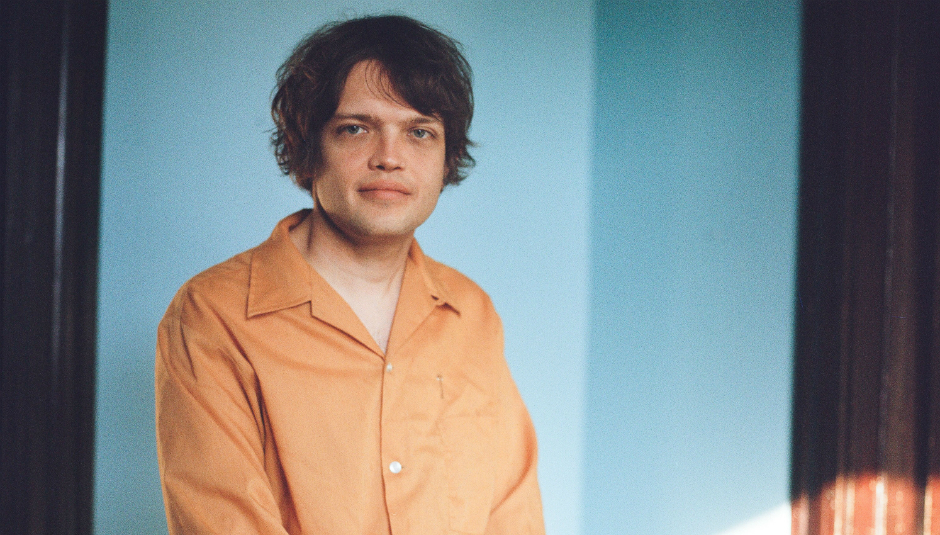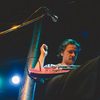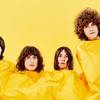The first album I listened to when I woke to the news that Donald Trump was elected was Modern Country by William Tyler. One track in particular on this album, ‘Kingdom Of Jones’, references Mississippi (where Tyler’s family is originally from) during the Civil War, and the county’s anti-slavery stand amidst the Civil War. Even though Tyler insists over Skype that the music wasn’t directly informed by this particular historical footnote, the gravity of it lies in what it represents: a glimmer of hope amidst a perilous time within American History, something that would ultimately become embedded in our basic set of human values. This is why Modern Country feels like an important record, even more so than when it was released last year.
Even though sonically, the record remains grounded in a heartland setting, Modern Country hits you on a visceral level akin to classical music or film music. It’s not a dour elegy, but a “love letter” as Tyler calls it. In the hindsight of Trump seizing the oval office, Modern Country’s cosmic Americana paints a powerful sentiment; that we can willingly be spirits of empathy who travel beyond our hardened, apathetic corporeal exteriors. The album is a majestic, spectral proxy of music oftentimes becoming most potent without oral language anatomizing its deep-rooted intent.
Tyler spoke at length to DiS about the way performance, travel, and research helped him rekindle with his own place in the world. A former axe-wielder of seminal Nashville indie stalwarts Lambchop and The Silver Jews, he initially rejected the country and Americana decree prevalent in Nashville. And while often compared to renegade fingerpickers like the late Jack Rose, the sheer breadth of both historical, anthropological and cultural points of interest reveal a zealous polymath.
DiS: You went to Syria and Turkey in 2010, two nations mired in crisis last year. What did you encounter during that trip?
William Tyler: I was there about a year before the uprising began. I was really interested in the history of early Christianity in the Middle East. There’s this book I read about ten years ago about this English travel writer and historian. He went to Egypt, Lebanon, Syria, and Turkey to visit these monastery sites, from a really early age, around the time of the Byzantine Empire. The book fascinated me, and it was weird to think of that part of the Middle East had this rich history of the church. Something about that really interested me.
I took a train from the Asian side across the Bosphorus in Instanbul to a city called Adana. And then I took a bus to a town that was right near the Syrian border. Basically, the Lonely Planet guide actually said that this is the easiest way to get in – and I already acquired a visa through the Syrian consulate in America. But it’s still a little sketchy to cross the border, because we don’t have any formal relations with them. I hitchhiked in these shared taxis, who take guides working on the Turkish side of the border, and commute back into Syria. Cause it’s about 45 minutes from Aleppo. I got into a car with three guys I didn’t know, and only one of them spoke English.
That is how I got into Syria. And at the checkpoints, obviously, I was the only one with an American passport, so I ended up taking a lot longer. And I had to bribe the guy and everything. But everyone there was really friendly. I spent the first two days in Aleppo and I stayed in the old city, which is where most of the bars and restaurants are. They’re all owned by Christians. You could only buy alcohol in the Christian parts of the city. I stayed at this hotel that was pretty nice. During my first night in Aleppo I went to this really nice cheap restaurant by myself. There was this rooftop bar where all these swanky teenagers were watching football, it was during the World Cup. I can’t remember who was playing precisely, but immediately I had this feeling of “Alright, everyone likes the same things everywhere”. That was something I felt during that whole trip.
But I’m not naive about the idea of living under a dictatorship like they did in Syria. I met a lot of expatriates there, several working with government organizations. There was this one American guy from Oregon who was living in Damascus who worked at the consulate I think. Once I started acclimating to everything, ironically, at the time it felt very safe. Of course, because it’s a military dictatorship, nobody owned any guns and there's hardly any crime. But then again, I didn’t foresee the Arab spring happening. In that part of the world things can change so quickly.
In a bar in Beirut, I remember thinking: “Man, this is crazy, it’s like being in Miami or something, like a party town.” Then this guy told me that one minute everything’s totally fine... and then suddenly it’s not. Things change really quickly, because the government is just so unstable there. But I believe Europeans understand the Middle East a little bit better because there’s a proximity factor, and a longer history, but Americans just really don’t understand the Middle East; they don’t even understand Israel. They’re often like “Oh yeah, there’s all these terrorists, there’s Israel, and there’s a lot of oil.” And they believe in a religion that seems very scary to us. That’s basically where it stops. They make no attempt to sort out the complicated history in those regions.
When I read about Syria, I knew it was a country trapped in time because of the Assad regime. Part of me did realize that if I was going to visit the country, it wasn’t going to stay like this for long. I just didn’t think it would be that quick. When you read about places like Iraq and Iran before the revolution, you understand they’re living on borrowed time, because the government is so disconnected from the people. I was just interested in the history and culture. At the time, it was one of the few Middle-Eastern countries that felt safe to visit. Obviously, that changed very shortly after I got back home. It’s hard to believe I actually got to go there.
Your first goal as a youth was to become a history professor. Instead it became music. But that thirst for assimilating knowledge and culture has permeated through your music. Where do you think that comes from?
I don't know. I was just one of those weird kids who was really into history. My dad always had a lot of books around, he was interested in that too, more like politics and stuff. I think both sides of my family had a lot of intellectuals. I do remember taking some European history classes in high school that really resonated with me. It's sort of like music too; I was interested in music at a very early age too.
You're from Nashville, so that's kind of a given, right?
I was very interested in classical music in particular when I was a kid. I wasn't interested in country or rock music even. I have always been more into composition, and orchestral music. It has definitely informed the way I write now, because I was so interested in that from an early age.
Makes sense. When I listen to ‘Gone Clear’, there's this one part that reminds me of 'Hungarian Dance' by Brahms.
Oh, that's cool. I wonder what part that is.
It's the intermezzo right before the song becomes all chimey and Reichian.
Oh, wow, that's awesome! I love Brahms, so maybe that's a subconscious thing that came up. I like Antonin Dvořák, I like all those central European composers from that period. There was a Brahms waltz LP that maybe my parents owned, or my grandpa. There's something about the expressiveness and the lyricism of that era of classical music: Beethoven and Bartók to Brahms, there's a lot of movement between minor and major, there’s this very fine line between melancholy and joy. That's when orchestral music was starting to achieve some secular depth.
The thing about classical music, especially in popular culture, it had been reinterpreted an infinite number of times, to a point where people don't remember who wrote what, and the original intent behind these ubiquitous compositions.
Yeah, that's a really good point. Of course, around Christmas time you hear so much Tchaikovsky. That's what inspires me, because it's different when you have your name, and you're the performer AND the composer and my picture's on the album, my identity is very closely tied to the music I create. But I also kind of hope that when I'm dead people will still hear the records or at least the melodies, and connect with them. It doesn't have to be anything about knowing who wrote it.
The original intent behind music becomes very malleable over time. That's why it surprises me that people still make a big deal about you making instrumental music. Classical music is a great example of instantly recognizable melodies causing this very visceral connection. Each famous classical piece correlates very basic, all-encompassing themes and emotions. Like you said, the way Tchaikovsky and Christmas become this symbiosis. Even in contemporary music, I feel that's something really worth aspiring to.
Like I said, classical music and orchestral music is the first thing that interested me as a kid. I do think that living in Nashville probably keeps me occupied with doing the opposite thing that everybody's doing. I don't want to be another singer-songwriter – not to take anything away from that. To be honest, I am not a very good singer, and I probably could get better at writing words. But I just don't think lyrically and I can't sing. So why force that issue? That's why I try to get into the opposite direction and explore it more. And Modern Country was just part of that too, trying to change the context even more by arranging the songs a different way.
I've interviewed several musicians from Nashville in the past. One of them, R. Stevie Moore, grew up in that whole country aristocracy. He felt like becoming a session musician was like a straitjacket. Did you have a similar rebel-phase at some point?
Long ago, I formed a power pop trio, Lifeboy, in which I actually was the singer. In a way, that was kind of a rebellion. But none of us were mature enough to take that into a way that it was going to grow. Some of it was really good… and some of it wasn't. Then I started playing with older musicians, specifically in Lambchop. I guess it felt like a rebellion at the time because that band was so not in sync with anything that was going on in Nashville. It sort of still isn’t, actually. It did give me a different perspective. To be fair and to be transparent – even up to the last couple of years – I didn’t have enough confidence, or maybe had a chip on my shoulder for all the wrong reasons, about country and Americana. I always kind of bristled at that, and didn’t want to be seen as that. I never thought I would even get invited into that club, even though it’s not a single “club”, but a bunch of different ones.
So that’s one of the things that – in a way – has been the most gratifying. My album has been viewed in Nashville – and this kind of has to do with the fact that I called it Modern Country, of course I’m playful with the words there – but the people in Nashville are treating me more like a country-Americana artist. And in a way, that’s great; I totally accept that. I started working with a booking agent in America, she books Joan Baez, The Indigo Girls, Emmylou Harris… but also Yo La Tengo and Glenn Kotche (of Wilco). The point is, I’ve gone from rebelling against the Nashville thing to re-embracing it a bit again, because there is such a level of musicianship in the city and such a tradition of that… that I do feel that it allows for some creativity. In terms of instrumental music there is this intersection of classical jazz and bluegrass or country that certain people like Bela Fleck, Jerry Douglas and Chet Atkins did back in the day. I’m interested in maybe exploring that more.
One of your It's All True -podcasts talks about context, how the meaning behind music reshapes in hindsight over time. You talked about a lot of songs like 'Desperado' by The Eagles, that once that was sung on piano by a girl, the music started to resonate. Do you notice these shifting contexts in your own music?
Yeah, totally. I would say one of the easiest way to relate it is my manager Brad Cook, who also co-produced Modern Country with me. We didn’t actually do this for the album, but we did talk about: “What if we do a song on Modern Country that’s like a reprise, but someone plays it on piano?” That has got me thinking: I always wondered about what I’d do as a composer. Not necessarily move away from the guitar, cause I don’t play another instrument other than guitar really well, but definitely write more music for other instrumental parts. It would also be a cool challenge to arrange parts for a piano player or a string quartet.
I hear all these melodies and that in itself changes the context of my music. And with that, I realize exactly what I think this is the key to a lot of instrumental music, for a popular audience that is. Especially when you see a movie and the way music works with it. It doesn’t even have to be original music, it can just be the way Stanley Kubrick uses classical music, it does change the context forever for the listener or the viewer. You’re always going to associate Richard Strauss with 2001: A Space Odyssey. I’m very interested in film and I would love to work with other media; I hope to engage with film more, or visual art. Or photography. Music doesn’t have to be the only focal point.
I’m interested in your choice to make Modern Country sound so pristine. You said something really beautiful in one of your podcasts, how AM Radio and its dissonance represents the America outside of the interstates. I thought that was a very cogent allegory to explain dissonance. I know that dissonance and noise isn’t anathema to your own music, Behold The Spirit had a lot of tape loops and interesting sounds, but it makes me wonder why Modern Country , which is very much informed by this forgotten part of America, opts for such pristine sounds.
Because I think that’s the way we recorded the album. We used very clear tones with the guitars and keyboards. Glenn Kotche is a classically trained percussionist, so even his parts felt very composed and arranged. It was all very direct. To give you an example; when we recorded Impossible Truth, we put a microphone in a room, at the other end from the amp, so that it sounded little bit more cavernous. But on Modern Country, all the guitars went straight into the recording desk. That was direct, and that was just a conscious aesthetic decision. I understand what you're saying about the pristine sound being in contrast to the subject matter of rural decay; I really like that contrast there. The example I would use involves music and film: the Popol Vuh soundtrack to the Werner Herzog movies. That's a big influence on me. And I was thinking very explicitly about tones that somewhat evoked some of the German bands from the 70s. I think it's like when you're driving through any kind of rural landscape that feels more surreal sounding, almost like post-modern science fiction music.
I feel the album has this undeniably romantic, roving spirit. So many small town people in America probably dream about leaving, going to Vegas or Hollywood. Or becoming a musician in Nashville. It feels like escaping from the drudgery almost.
Yes, definitely. Although, in my own way, I grew up in the city of Nashville and when I was a kid – when I was making rock music at least – I was dreaming about England in the 60s or New York in the 70s. I wasn't thinking about Nashville, my immediate surroundings, that was really inspiring me. When I was younger I probably romanticized the bigger cities and the older I've gotten, the more I've travelled, the more I wanted to reconnect in my own way with my background as a southerner, not just growing up in Tennessee. My family is from Mississippi, which is predominantly a very rural state with a lot of small towns. I'm trying to reconnect to that on my own terms. I find myself wanting to spend more time in those kinds of places.
Honestly, I feel more creative being in the countryside. It's just that simple. Being in large cities tends to exhaust me rather than stimulate me. Being in New York and London for a few days, there's lots of cafe's and art galleries and interesting people to meet and talk to, but after a few days, I just get tired. It's kind of like all the Grateful Dead guys moving out of San Francisco into the countryside about a year after that whole Summer Of Love thing blew up. There is something to be said about music that lives in a smaller place, a quieter place.
Modern Country is out now via Merge Records. For more information about Willaim Tyler, please visit his official website.
Photo credit: Angelina Castillo






















